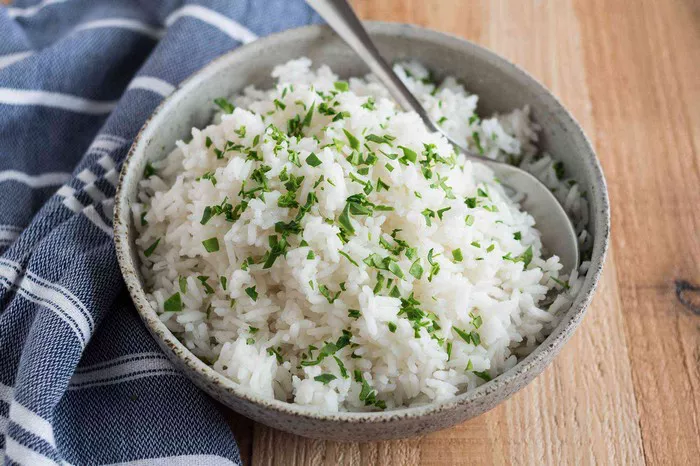Diabetes is a chronic condition affecting millions worldwide, characterized by the body’s inability to produce or effectively use insulin. Managing diabetes requires a multifaceted approach, with diet playing a crucial role. For diabetic individuals, a diet rich in certain nutrients can significantly impact blood sugar control, overall health, and quality of life. This article explores the dietary elements that should be emphasized in a diabetic diet, providing a comprehensive guide for those looking to optimize their health through nutrition.
Understanding Diabetes and the Role of Diet
Before delving into specific dietary recommendations, it’s essential to understand the relationship between diabetes and diet. Diabetes comes in two primary forms: Type 1 and Type 2. Type 1 diabetes is an autoimmune condition where the body attacks insulin-producing cells in the pancreas. Type 2 diabetes, which is more common, occurs when the body becomes resistant to insulin or the pancreas fails to produce enough insulin.
Diet is a cornerstone of diabetes management. What and how much a person eats can directly influence blood glucose levels. A diet that helps maintain stable blood sugar levels is critical for preventing complications associated with diabetes, such as cardiovascular disease, nerve damage, and kidney issues.
Carbohydrates: Quality Over Quantity
Carbohydrates are the primary macronutrient affecting blood sugar levels. However, not all carbohydrates are created equal. The type and quality of carbohydrates consumed are more important than the sheer quantity.
Complex Carbohydrates
Complex carbohydrates, found in whole grains, vegetables, legumes, and fruits, should be a significant part of a diabetic’s diet. These foods are high in fiber, which slows the absorption of glucose into the bloodstream, preventing rapid spikes in blood sugar levels. Fiber-rich foods also promote satiety, aiding in weight management—an important factor since excess weight can exacerbate insulin resistance.
Glycemic Index
The glycemic index (GI) measures how quickly a carbohydrate-containing food raises blood glucose levels. Diabetic individuals should focus on low-GI foods, which release glucose more slowly and steadily. Examples include oats, barley, lentils, beans, and most non-starchy vegetables. Incorporating low-GI foods helps in maintaining stable blood glucose levels and can improve long-term glycemic control.
Proteins: Building Blocks for a Healthy Body
Protein is another essential macronutrient in a diabetic diet. It plays a vital role in muscle repair, immune function, and satiety. Including sufficient protein in meals can also help manage blood sugar levels by slowing carbohydrate absorption.
Lean Proteins
Choosing lean protein sources is crucial. Options include:
Fish: Rich in omega-3 fatty acids, which have anti-inflammatory properties and are beneficial for heart health.
Poultry: Skinless chicken or turkey provides high-quality protein without excess saturated fat.
Legumes: Beans, lentils, and peas are excellent plant-based protein sources, also high in fiber.
Low-fat Dairy: Greek yogurt and cottage cheese provide protein and calcium with less saturated fat.
Plant-Based Proteins
Increasingly, research suggests that plant-based diets can be particularly beneficial for diabetics. Plant-based proteins, such as tofu, tempeh, and edamame, not only provide necessary protein but also contain compounds that may improve insulin sensitivity and reduce the risk of heart disease.
Fats: Choosing the Right Types
Not all fats are harmful. In fact, certain fats are essential for health and can even help manage diabetes. The key is to focus on healthy fats and limit unhealthy ones.
Healthy Fats
Monounsaturated and polyunsaturated fats, found in foods like avocados, nuts, seeds, and olive oil, can improve blood lipid profiles and reduce the risk of cardiovascular disease. Omega-3 fatty acids, primarily found in fatty fish like salmon and mackerel, are particularly beneficial for their anti-inflammatory properties.
Unhealthy Fats
Diabetic individuals should limit their intake of saturated fats and trans fats, found in red meat, full-fat dairy products, and processed foods. These fats can increase cholesterol levels and the risk of heart disease, a common complication of diabetes.
Fiber: The Unsung Hero
Fiber is a crucial component of a diabetic diet, offering numerous health benefits. It aids in digestion, helps maintain stable blood sugar levels, and can lower cholesterol.
Soluble and Insoluble Fiber
There are two types of fiber: soluble and insoluble. Both are important, but soluble fiber is particularly beneficial for diabetics. It dissolves in water to form a gel-like substance that can help lower blood glucose and cholesterol levels. Sources of soluble fiber include oats, barley, nuts, seeds, beans, lentils, and some fruits and vegetables.
Micronutrients: Small but Mighty
Micronutrients, including vitamins and minerals, play vital roles in overall health and diabetes management. While a balanced diet typically provides necessary micronutrients, some may require special attention in a diabetic diet.
Magnesium
Magnesium is involved in over 300 enzymatic reactions, including glucose metabolism. Low magnesium levels are common in people with diabetes and can worsen insulin resistance. Magnesium-rich foods include leafy greens, nuts, seeds, whole grains, and fish.
Chromium
Chromium enhances insulin action and is involved in carbohydrate, fat, and protein metabolism. While chromium deficiency is rare, ensuring adequate intake through foods like broccoli, barley, oats, and green beans can support glucose metabolism.
Vitamin D
Vitamin D deficiency is common among diabetics and can impair insulin production and glucose tolerance. Sunlight exposure and foods like fatty fish, fortified dairy products, and eggs can help maintain adequate vitamin D levels.
Antioxidants
Oxidative stress plays a significant role in diabetes complications. Antioxidants such as vitamins C and E, selenium, and beta-carotene can mitigate this stress. Fruits, vegetables, nuts, and seeds are rich in these beneficial compounds.
Hydration: An Overlooked Aspect
Proper hydration is essential for everyone, particularly for diabetics. Dehydration can lead to elevated blood sugar levels. Drinking water regularly helps the kidneys flush out excess glucose through urine. Aim for at least eight glasses of water a day, more if you are active or in hot climates.
Meal Planning and Timing
When it comes to managing diabetes, not just what you eat, but when you eat can also have a significant impact on blood sugar levels. Here are some tips for effective meal planning and timing:
Regular Meals and Snacks
Eating at regular intervals helps maintain steady blood glucose levels. Skipping meals or having irregular eating patterns can lead to blood sugar spikes and drops. Aim for three balanced meals and one to two healthy snacks per day.
Balanced Meals
Each meal should be well-balanced, incorporating carbohydrates, protein, and healthy fats. This combination helps slow the absorption of glucose into the bloodstream, providing more stable energy levels.
Portion Control
Controlling portion sizes is crucial for managing blood sugar levels and maintaining a healthy weight. Use measuring cups, spoons, and food scales to ensure appropriate portion sizes, especially for high-carbohydrate foods.
Special Dietary Patterns for Diabetics
Several dietary patterns have shown promise in managing diabetes. While individual preferences and needs vary, these diets provide a framework that can be tailored to suit each person.
Mediterranean Diet
The Mediterranean diet emphasizes whole foods, healthy fats, lean proteins, and plenty of fruits and vegetables. It is high in fiber and antioxidants, promoting heart health and stable blood sugar levels. This diet also encourages the use of olive oil, nuts, and seeds, which provide healthy fats.
Plant-Based Diets
Plant-based diets, including vegetarian and vegan diets, focus on whole grains, legumes, fruits, vegetables, nuts, and seeds. These diets are naturally high in fiber, antioxidants, and phytochemicals, which can improve insulin sensitivity and reduce the risk of diabetes complications.
DASH Diet
The Dietary Approaches to Stop Hypertension (DASH) diet is designed to combat high blood pressure but also benefits diabetics. It emphasizes fruits, vegetables, whole grains, lean proteins, and low-fat dairy while reducing sodium and unhealthy fats.
Personalizing the Diabetic Diet
While general guidelines are helpful, personalizing the diet to fit individual needs, preferences, and medical conditions is essential for long-term success. Here are some strategies:
Work with a Registered Dietitian
A registered dietitian (RD) specializing in diabetes can provide personalized guidance, helping to create a meal plan that meets nutritional needs, fits lifestyle preferences, and aligns with medical conditions.
Monitor Blood Sugar Levels
Regular monitoring of blood sugar levels can help identify how different foods and meal patterns affect individual glucose responses. This information can guide dietary adjustments.
Consider Cultural and Personal Preferences
Incorporating cultural and personal food preferences into the diet plan ensures it is enjoyable and sustainable. A diet that feels restrictive is less likely to be followed long-term.
Address Emotional Eating
Emotional eating can be a challenge for many diabetics. Strategies such as mindful eating, seeking support from a therapist, or joining a support group can help address the emotional aspects of eating and improve dietary adherence.
See also:What Rice Can Diabetics Eat
Conclusion
Managing diabetes through diet involves more than just restricting sugar and carbohydrates. It requires a comprehensive approach that includes choosing high-quality carbohydrates, lean proteins, healthy fats, and fiber-rich foods while ensuring adequate intake of essential micronutrients. By focusing on these dietary components, diabetics can achieve better blood sugar control, improve overall health, and reduce the risk of complications. Personalizing the diet to fit individual needs and preferences, and working with healthcare professionals, can further enhance the effectiveness of dietary management. Through informed choices and sustainable practices, individuals with diabetes can lead healthier, more fulfilling lives.
Related topics:
Why Is It Important For Elderly To Eat Healthy


























